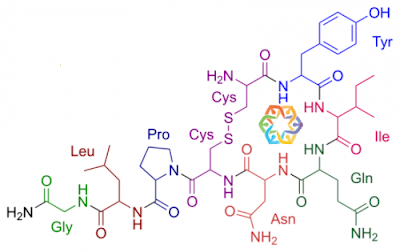Asexuality
"Even if I can tell someone is attractive, I don't want to do anything sexual with them."
According to the Asexuality Visibility and Education Network (AVEN), an asexual person is someone who does not experience sexual attraction. "Unlike celibacy, which is a choice, asexuality is a sexual orientation," they explain. "Asexual people have the same emotional needs as everybody else and are just as capable of forming intimate relationships."
But like people of any sexual orientation, different asexual people experience asexuality differently. I spoke with two anonymous asexual women about labels, dating, and what it's like to be a twentysomething woman in a world that assumes that everyone wants sex.
So, you identify as asexual. What does that mean to you?
Woman A: To me, it means that someone doesn't feel sexual attraction toward other people. I don't think it means you can't tell when someone is attractive. Even if I can tell a man or woman is physically attractive and dresses nice, I don't fantasize about doing anything sexual with them. In all my relationships I've been OK with nonsexual intimacy but I've never wanted to go beyond that. I knew it was expected but it's not something I thought about most of the time.
Woman B: I've never experienced sexual attraction to anyone else, regardless of gender, but that doesn't mean there's anything wrong with me — I'm not immature, or frigid, or broken. It's useful and comforting to have a term for the way I feel (or don't feel) about different types of relationships.
How old were you when you started using the label "asexual" to describe yourself? How old are you now?
Woman A: I was around 18 or 19 when a friend mentioned asexuality in an offhand way, but I didn't learn the actual definition and start identifying as asexual until I was 22. I'm 23 now.
Woman B: I was 14 or so when I first saw the term online and said, "That's me!" I'm 23 now, almost 24, so it's been about a decade. I became more confident about using the label when I was 17 — that's when I thought, Yeah, this isn't going away. Or coming. Whichever.
What was it like growing up asexual in a world in which everyone is assumed to want sex?
Woman A: Among my friends, I was usually dismissed. If the topic of sex came up, they stopped me before I started talking because I'd told them about having no interest. But I didn't have many moments where I thought there was a problem with not caring about it.
Woman B: It was frustrating like the whole world was in on some joke I wasn't. I often felt like I was foolish, immature, or even broken because I never hit any of these "milestones" I was told to expect. No crushes, no dates, and no interest. Full stop. My mom actually asked if I was gay a few times, but gender and sex didn't matter. I'd just shrug.
After learning about asexuality, I felt better knowing I wasn't alone but that only goes so far. Face-to-face, once I got through explaining what asexuality was — because no one ever knew — I'd get any variety of confused, pitying, or skeptical looks. I was asked if I was sick, was I raped, was I gay, was I picky, was I lying to get out of a date? I even had a near stranger ask me if I'd had a brain scan and hormone test. You could like boys, girls, or any other gender, but to like no one made no sense.
Media was no real comfort here, as it was rare to see anyone who even might be asexual. Most characters weren't human (think robots, aliens, and monsters), and usually their real or perceived asexuality was something to be cured or overcome. It also wasn't something you saw associated with anyone coded as a woman unless of course, you needed someone to thaw her frigid heart. Or shank her for being a monster. The only positive, tenuous portrayal I really knew growing up was Sherlock Holmes, who is still often compared to a machine.
What is it like for you now, as an adult?
Woman A: It seems like if you aren't a sexual person you don't get recognized in books, movies, or television. But now I just move on to something else instead of giving time to things that don't acknowledge me.
Woman B: It's definitely better now, especially with the internet and slow increase in awareness. I've met people who didn't need an "asexuality 101" talk or Q&A in the last few years, and that never happened growing up. I have the language and experience to understand everything a lot more and to help others understand too.
I'm still starving for representation though. I'd love to see myself in that way in media I consume and for it to be positive too. Asexuality is pretty invisible right now unless you're looking for it, and it would be so cool to name a character (or characters!) like me when explaining asexuality and to one day not have to explain it at all. Even other MOGII (Marginalized Orientation, Gender Identity and Intersex) people tend to disparage, ignore, or forget about asexuality.
Any sexuality can be confusing, but because asexuality isn't well known, I sometimes worry I'll do something "wrong" and discredit the cause or something. It's pretty silly and doesn't make a lot of sense when I think about it, but I still tend to veer between wanting to be some kind of "model ace," or throwing my hands up in the air to say, "I am what I am!" I've gotten better since high school and even college, but I still have some stuff to unpack mentally about that.



Comments
Post a Comment